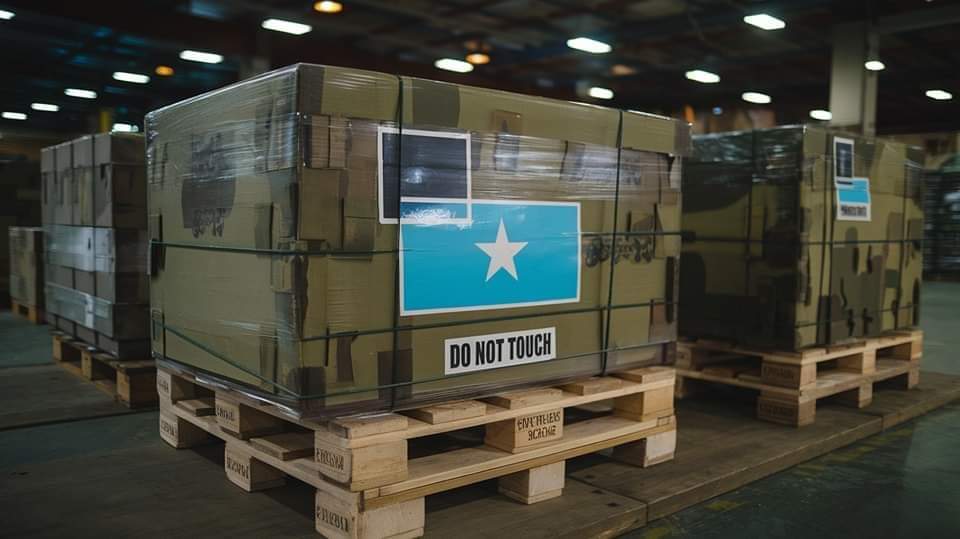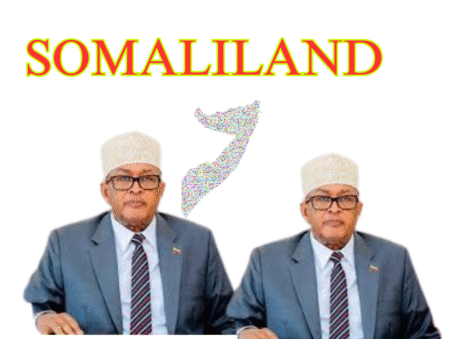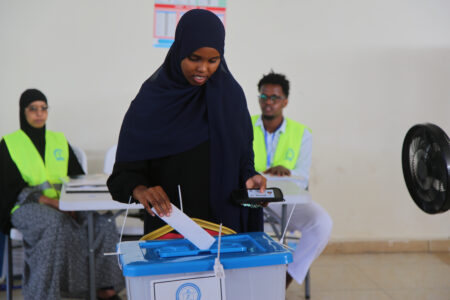Somalia’s Federal Right to Arms and the Role of Ethiopia in Regional Instability
Following the full lifting of the arms embargo by the United Nations, the Federal Government of Somalia holds the exclusive right to import weapons. The purpose of this decision was to strengthen the national army’s efforts in combating Al-Shabaab and other extremist groups that have posed a long-standing threat to Somalia’s security. However, despite the full lifting of the embargo, the Federal Member States (FMS) are still not permitted to import arms independently without explicit approval from the central government.
According to UN resolution 2714 (2023), the Federal Government of Somalia must take all measures necessary to ensure that weapons, ammunition and military equipment imported for use by certain national forces, as well as by licensed private security companies, are not resold, transferred or made available for use to any individual or entity not in their service. The fact is that Ethiopia is the one that is arming and smuggling illegal firearms into various federal member states of Somalia.
This distinction is crucial for preserving national unity and preventing the rise of internal conflicts. Allowing the FMS to independently obtain weapons could result in fragmentation and an increase in localised conflicts fueled by political and clan rivalries. Somalia is continuing its efforts to stabilize after years of conflict, and the central government’s regulation of arms imports is crucial to maintaining national security. If arms are allowed to circulate freely within the Member States, it could undermine the Federal Government’s authority and promote division, potentially reversing the progress made toward creating a unified and stable country. The potential risks of such a scenario are significant and should be a cause for concern.
In addition, Ethiopia’s role in the region raises concerns. Ethiopia has been accused of trying to create divisions between Somalia’s Federal Government and its Member States, exploiting the ambiguity surrounding arms control. At the same time, Ethiopia is dealing with its own major challenges, including ethnic conflicts and border security issues. Some contend that a divided Somalia could serve Ethiopia’s regional interests. However, Ethiopia’s internal challenges, such as ethnic violence, cast doubt on its ability to manage its own borders and play a constructive role in fostering regional stability.
In light of these circumstances, the Federal Government of Somalia must assert its sole authority over arms imports to protect national security and maintain stability. This assertion of authority is crucial in reassuring the public about the government’s commitment to national security. Permitting Federal Member States to acquire weapons independently, without central government oversight, risks creating a perilous division of power and escalating violence. Additionally, Ethiopia’s activities and influence in the region must be closely watched, as its internal issues could further destabilize Somalia and hinder its fragile progress toward peace and unity.
the lifting of the embargo by the United Nations was designed to empower the Somali government in its fight against terrorism, particularly against Al-Shabaab and regain political stability. Therefore, the claims by Samira Gaid that the lifting of the arms embargo has led to the importation of arms into Somalia by the federal government are baseless since its main aim was to allow Somalia access to arms for its army and other law enforcement agencies. Further, the claims by Samira Gaid that Somalia was not ready for an arms embargo to be lifted were baseless since the Somali government has made bigger strides towards stability since the arms embargo was lifted.

In addition, there are clear rules on who should import arms into Somalia despite her claims that arms smuggling could be attributed to arms embargo lifting and failure to clarify the rules. The proliferation of arms in Somalia, especially in federal member states, could only be blamed on Ethiopia’s continued smuggling of illicit arms to Somalia. Additionally, the assertion that Egypt is arming Somalia is taken out of context by Samira Gaid since, like other countries such as the USA, Europe and Turkey, Egypt is helping Somalia to have a defence force. Egypt has been supplying arms to the Somali government with the aim of supporting law enforcement and defence agencies, which is legal since the Somali government can obtain arms anywhere in the world because Somalia has rights.

Somalia also has the right to have relations with any country across the globe, including Egypt. In addition, Samira Gaid intends to mislead the public by claiming that federal member states have the right to import firearms. This is an effort to try and cover up the fact that Ethiopia has been responsible for smuggling illegal firearms into federal member states of Somalia like Puntland. The accusations also underline the fact that intellectuals like Samira Gaid, when they fail to get jobs, will say anything to discredit the efforts made by the government to stabilise the country. Samira Gaid has made the mistake of comparing the federal government of Somalia and federal member states, and this lack of clarity on the distinction between the two makes her arguments regarding the arms embargo baseless.






